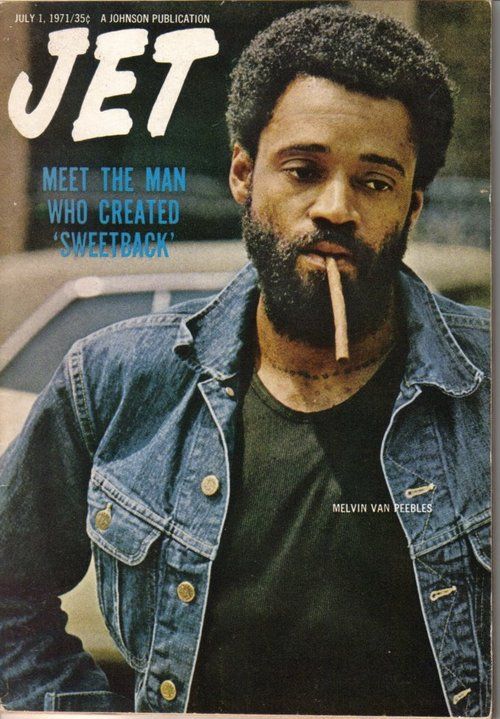Melvin Van Peebles
By:
August 21, 2014

“What a relief, what a joy, what a respite to discover a book, a slim, obviously autobiographical novel,” enthused the Amsterdam News’ Poppy Cannon White of MELVIN VAN PEEBLES’ (born 1933) A Bear For The FBI, “that is different and unpredictable as next year, full of fire and life and heartbeat. But without obscenity, perversions, riots and rates.” The time was September 1968, a year full of riots, but Van Peebles — a Chicago native who’d spent the last decade in France — was in his ascendancy. His first feature film, The Story of a Three Day Pass, had received acclaim that summer (“a gentle cross between Hiroshima Mon Amour and Guess Who’s Coming To Dinner” opined Renata Adler) and his Mingus-influenced spoken-word album, Brer Soul, would be released in December. With Watermelon Man (1970), Van Peebles became, after Gordon Parks, Hollywood’s second black director. Godfrey Cambridge plays Jeff Gerber, a white insurance salesman who awakes one morning to find he’s turned black; mortification follows. If not Van Peebles’ purest creation — screenwriter Herman Raucher was white — it’s indisputably an auteur’s film: not least because the director also composed the score, whose witty, encyclopedic melange of jazz, blues and soul styles would prove characteristic in his subsequent screen and stage works. Van Peebles’ next picture, the incendiary, X-rated, self-produced Sweet Sweetback’s Baadasssss Song (1971) was an emotional and financial triumph. To his numerous critics, Van Peebles replied: “When’s the last time you saw a film in which the black man won in the end?”
THE STORY OF A THREE DAY PASS
BRER SOUL
WATERMELON MAN
SWEET SWEETBACK’S BAADASSSSS SONG
***
On his or her birthday, HiLobrow irregularly pays tribute to one of our high-, low-, no-, or hilobrow heroes. Also born this date: Kim Cattrall, Jackie De Shannon, Aubrey Beardsley.
READ MORE about members of the Postmodernist Generation (1924-33).
